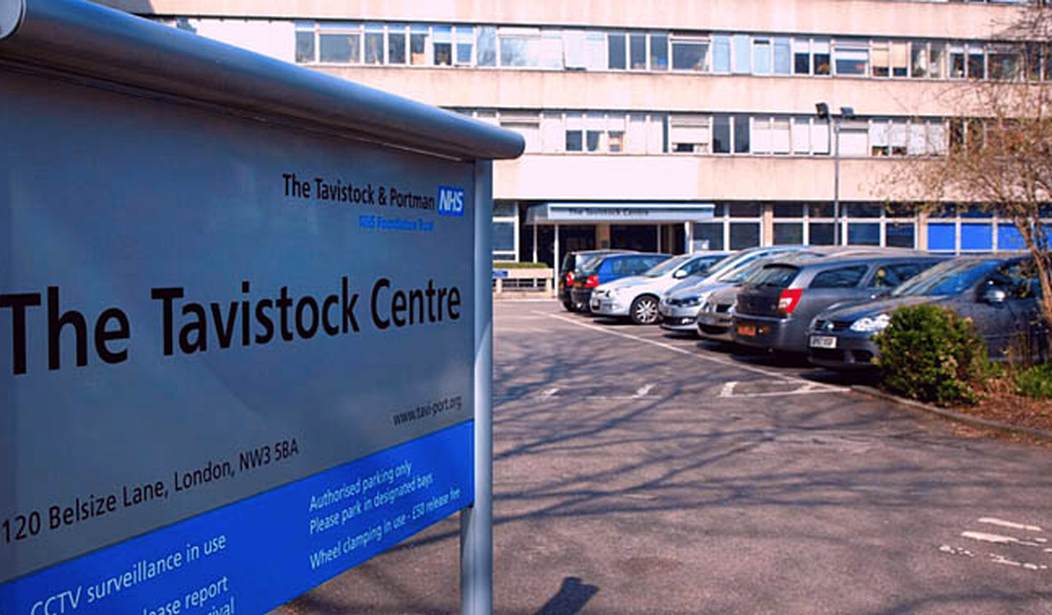I’ve written about BBC journalist Hannah Barnes before. She’s the person whose investigation into the UK gender clinic known as Tavistock eventually led to it being shut down. Saturday Bari Weiss published an interview with Barnes in which she asked about what led her to investigate this story.
Bari Weiss: Hannah, you’ve had a really long career at the BBC. You’re an award-winning producer for their flagship news and current affairs program, Newsnight, which is a bit like 60 Minutes in terms of prestige. For the past decade and a half, you’ve been reporting and editing some of the BBC’s most respected documentaries and shows. But for whatever reason, you decided to step into the most controversial topic in the world. Why did you decide to do that?
Hannah Barnes: Well, I didn’t realize at the time it was the most controversial topic in the world. I think I stepped into it because I thought there was something going on there, and it’s the job of a journalist to shine a light on something that’s important but that we’re not hearing much about. This is about children receiving off-label drugs and doing something potentially major to their bodies. For some children that will obviously be the right path, but when we started looking into it, we found that there were ten clinicians—a quarter of the staff—at the Gender Identity Development Service (or GIDS) that had expressed quite serious concerns at this point. Yet, the British media weren’t giving it the attention it deserved. I went into it thinking I don’t know if what they’re saying is true, but it’s really worth looking at because that’s the kind of thing we should be doing as journalists.
That concern coming from within Tavistock had been going on for more than a decade. In fact, an internal audit had been done in 2000. Then in 2005 another audit of the organization was carried out by its then-director. But the organization sat on both reports until Barnes finally filed an FOIA for them. And even then, Tavistock fought their release.
Barnes: Even in 2005, Sue Evans, who was the first whistleblower, felt that young people were being referred too quickly for physical interventions for puberty blockers, and there really wasn’t adequate exploration in some of these cases. So, the report, which was very thorough, went unseen until 2020 when I filed a Freedom of Information Act and received it from Tavistock (they had resisted quite vigorously). And it’s really striking because the recommendations are really sensible. What Dr. David Taylor, who was the medical director, said was: if we’re going to do this, we need to do it properly. We need to conduct proper research. How are these young people using the blocker? Are they using it as time to think, or what else is going on? Who are the people that we’re seeing? And he said, look, I’m not saying we shouldn’t use blockers. But they should be a last resort. Therapy should come first. Most importantly, he said, we have to support our staff in being able to say no when a patient requests puberty blockers and intervention. And he said, if our staff doesn’t think it’s appropriate, they must be able to say no and be supported in doing that. Dr. Taylor also suggested that they do regular and retrospective audits of both those who went on the blockers and those who didn’t, because you can learn from everyone. But none of that happened. So, as for the second part of your question, how were the findings used? Well, they were ignored.
As a result of the public reports, the NHS commissioned a detailed report which also found that staff felt “pressure to adopt an unquestioning affirmative approach.” That pressure wasn’t just coming from inside the clinic it was primarily coming from activists outside the clinic. Asked why all of this happened Barnes argued that it was an unspoken idea that certain people couldn’t be questioned.
Barnes: This area of healthcare has avoided any of the normal scrutiny one would expect, particularly when dealing with children and with a drug that’s being used off-label. The questions and scrutiny that would normally apply from healthcare commissioners, from politicians, from society, and from the media, they just weren’t asked. And I think that’s what’s gone wrong. Collectively, there has been this fear that if you questioned the standard of care here, that you’re somehow questioning the patient population. We wouldn’t have some great cancer hospital applying treatments which haven’t gone through clinical trials and don’t appear to have any evidence of them working. That’s not attacking people with cancer. That’s attacking the system. It’s really strange that any scrutiny is seen as hateful when actually the reverse is true. Because if gender clinics and society and medicine can get this right, then care will be better both for patients who will thrive as trans adults, and for those for whom it won’t be the right pathway. It’s going to be better for everybody.
Clearly, this is no way to run a medical service for children. Doctors and nurses can’t do their jobs in far of being labeled transphobic. Treatment needs to rely on actual evidence, not strong feelings or threats. Hopefully some of the common sense breaking out in the UK on this issue will find its way here eventually.







